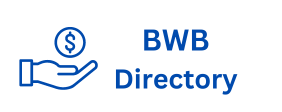Scraping is a powerful and effective technique for automated data extraction from websites. In the context of LinkedIn , this method allows professionals to collect information about specific profiles, companies, and industries, making sales prospecting and marketing much easier. To better understand this concept, let’s explore the basics of scraping, how it works, the types of data that can be extracted from LinkedIn, and how scraping differs from other data collection methods.
Definition and Basic Principles
Scraping , or data scraping , is an automated process that extracts data from a website by analyzing its structure and systematically retrieving relevant information. Unlike manual data collection, which can be time-consuming, scraping allows you to retrieve large volumes of data quickly and efficiently. The process involves using scraping software that accesses a web page, extracts user-defined data (such as text, images, or links), and how to build telemarketing lead exports it in a structured format .
Imagine you want to get a list of decision-makers in the finance industry on LinkedIn, with their names, job titles, and companies. Rather than searching for each profile manually, a scraping tool will automate this task. It will extract all the profiles that match your criteria and export the data in table form, allowing you to analyze it or પુરસ્કાર વિજેતા દસ્તાવેજી integrate it into your customer relationship management (CRM) systems.
A LinkedIn scraper is a software or application specifically designed to extract information from the LinkedIn professional platform. These tools use LinkedIn APIs or directly analyze profile and company pages to extract data such as name, job title, skills, connections, or even recent posts.
A recruiting firm can use a LinkedIn scraper to extract candidate profiles that match a specific position. The tool will scan LinkedIn profiles to extract information such as education , work experience , and key skills . This helps to compile a list of potential candidates and quickly start discussions with the most qualified ones.
LinkedIn scraping can be used to extract a wide variety of useful information, such as:
This information is essential for prospecting , market analysis , and recruiting , allowing you to refine
your searches and target more precisely
If you need to extract information only about marketing managers in medium-sized companies in the retail sector , a LinkedIn scraper allows you to retrieve exactly this group of people with detailed information, while a manual aleart news collection method would be less accurate and more time-consuming.
LinkedIn scraping is an essential tool for those looking to automate data collection on the platform, whether for sales prospecting , recruiting , or market analysis . By using the right scrapers, businesses can improve efficiency and more accurately target their sales efforts. However, it is crucial to follow LinkedIn’s user guidelines and ensure that scraping actions adhere to legal and ethical standards.
Real-world example : A B2B company specializing in CRM software uses Linked Helper 2 to retrieve information about companies and their management teams from LinkedIn. The tool allows them to create segments of prospects based on very specific criteria, such as industry or company size.



